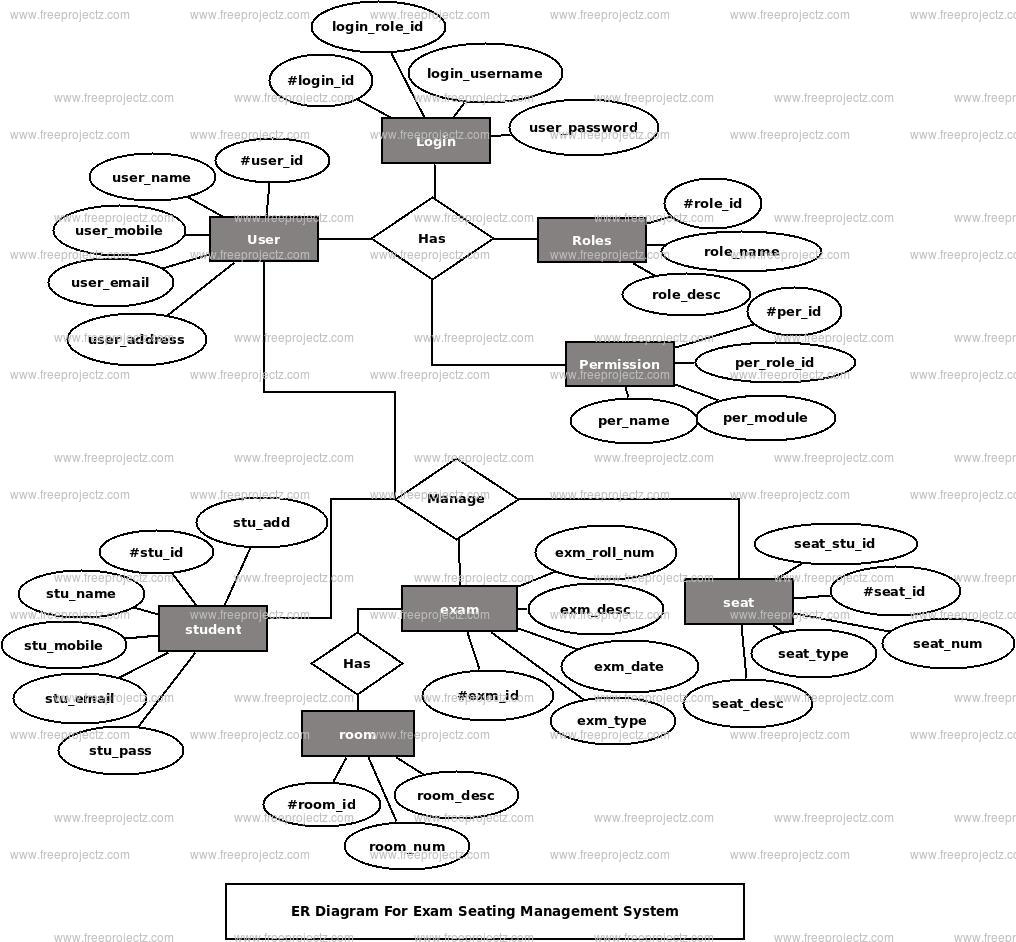- Posted By: freeproject
- Comments: 0
Posted By freeproject on July 17, 2017

This ER (Entity Relationship) Diagram represents the model of Exam Seating Management System Entity. The entity-relationship diagram of Exam Seating Management System shows all the visual instrument of database tables and the relations between Block, Exam, Student, Teacher etc. It used structure data and to define the relationships between structured data groups of Exam Seating Management System functionalities. The main entities of the Exam Seating Management System are Student, Block, Room, Exam, Seat and Teacher.
Exam Seating Management System entities and their attributes :
- Student Entity : Attributes of Student are student_id, student_college_id, student_name, student_mobile, student_email, student_username, student_password, student_address
- Block Entity : Attributes of Block are block_id, blocK_ room_id, block_number, block _description
- Room Entity : Attributes of Room are room_id, room_exam_id, room_number, room_type, room_description
- Exam Entity : Attributes of Exam are exam_id, exam_student_id, exam_roll_number, exam_date exam_name, exam_type, exam_description
- Seat Entity : Attributes of Seat are seat_id, seat_student_id, seat_exam_id, seat_number, seat_type, seat_description
- Teacher Entity : Attributes of Teacher are teacher_id, teacher_exam_id, teacher_name, teacher_mobile, teacher_email, teacher_username, teacher_password, teacher_address
Description of Exam Seating Management System Database :
- The details of Student is store into the Student tables respective with all tables
- Each entity (Teacher, Room, Seat, Block, Student) contains primary key and unique keys.
- The entity Room, Seat has binded with Student, Block entities with foreign key
- There is one-to-one and one-to-many relationships available between Seat, Exam, Teacher, Student
- All the entities Student, Seat, Room, Teacher are normalized and reduce duplicacy of records
- We have implemented indexing on each tables of Exam Seating Management System tables for fast query execution.











































